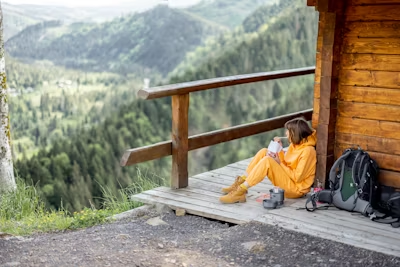In 2025, remote wellness retreats are rapidly becoming the go-to solution for people seeking a deep, rejuvenating break from the pressures of modern life. These innovative retreats, combining elements of self-care, digital detox, and mental health support, are emerging as the ultimate way to reset, recharge, and find balance in an increasingly hectic world.
What sets remote wellness retreats apart from traditional getaways is their focus on complete disconnection and mindfulness. Guests are encouraged to fully unplug from the digital world, leaving behind their phones and other electronic devices in order to immerse themselves in nature, meditation, and tailored therapeutic experiences. These retreats often take place in remote, tranquil locations—mountain lodges, beachfront cottages, and forest cabins—designed to allow participants to escape the daily grind and focus solely on their well-being.
The rise of remote wellness retreats comes at a time when mental health has become a growing concern, with many people experiencing stress, anxiety, and burnout in their professional and personal lives. According to a recent study, 2024 saw a marked increase in people seeking professional help for mental health issues, and the demand for mental wellness services continues to rise. In response, wellness centers are capitalizing on the desire for a more profound, holistic experience that not only refreshes the body but also nurtures the mind and spirit.
These retreats are often curated to meet the needs of participants in a highly personalized way. Many offer a range of activities such as yoga, guided meditation, hiking, art therapy, and breathwork, all aimed at helping individuals gain clarity, reduce stress, and enhance their emotional well-being. Meals are typically plant-based and designed to support detoxing and mindfulness, with nutrition experts on hand to guide participants through healthy eating habits and sustainable practices.
What’s particularly appealing about these remote wellness experiences is their focus on long-term transformation. While traditional vacations can offer a temporary escape, these retreats are designed to teach skills and practices that can be applied in everyday life, helping individuals build healthier routines and mindsets moving forward. Mental health professionals and life coaches are often included in the retreats to provide one-on-one sessions, offering support for those dealing with personal challenges or seeking to overcome mental health obstacles.
The trend is not just for those looking to get away for a few days of peace; many people are booking extended retreats that last a week or more, eager to dive deeper into self-reflection and healing. Some wellness centers have even begun offering hybrid retreats, where participants can join virtually for parts of the program, offering a more flexible option for those who can’t fully disconnect but still need to recharge.
As more people prioritize mental health in their lives, the rise of remote wellness retreats is showing no signs of slowing down. In 2025, these retreats are expected to become an essential part of the wellness industry, providing much-needed respite in a fast-paced, technology-driven world. Whether it’s a weekend getaway or an extended stay, remote wellness retreats offer a sanctuary for those looking to step away from the chaos and embrace a journey of mental and emotional restoration.
